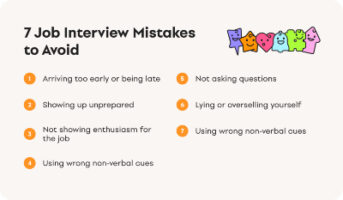Education In The Future: The Trends That Will Make A Difference (Guest Blog)
The education industry has been slow when it comes to adopting new technologies. But that changed quickly with the Covid-19 last year. One of the biggest changes was the massive transition to online learning. Sixty-five percent of U.S. households with children used online learning during the pandemic. But what can we expect in the next few years? Here are the trends that will make a difference in how we learn.
Evolving Curriculum
One of the first trends that will make a difference in the education industry will probably be the evolving curriculums many institutions will introduce to adapt their teachings to the new society. Society has evolved very quickly with the introduction of new technologies in the last few decades.
Each year with more technology, the needs of society have changed. For example, people have access to information 24/7 through their smartphones or computers. It is no longer necessary to memorize facts like history dates or events when you can have an answer in seconds with a click.
Instead, it is more helpful to teach people how to use the Internet as a tool and how to identify genuine information when the Internet is filled with fake news. Another thing people should know is to be aware of the risks. As with every powerful invention, people can also use technology to hurt others and cause negative disruption to society.
Therefore, education has to evolve its curriculum at all levels to produce educated individuals that can better understand the new ways society works. We will probably start seeing high school curriculums that include programming languages, digital security, and the basics of new technologies like blockchain.
AI to Assist, Not to Replace
There have been many developments in the area of artificial intelligence in the last decade. It hasn’t reached a point where scientists and engineers can completely replicate human intelligence. However, some critical milestones like machine learning, natural language processing, and deep learning are making a vast difference in how we work.
Machine learning and deep learning are subtypes of AI that allow computers to learn and improve while doing what they were programmed to do. Natural language processing will enable computers to understand human languages in written and verbal forms, but it still has some way to go. These are just a few technologies, but how is AI making a difference in education?
Well, for starters, artificial intelligence can help improve the learning process from start to finish. It will become an assistant to the teacher and students. It is unlikely that AI will completely replace teachers and mentors, at least not in the next ten or twenty years. Many online learning platforms already use AI to improve the student experience.
They use AI-powered chatbots to guide students on self-paced courses. And they use it to create learning platforms that can adapt to the students’ learning pace by evaluating their performance. If AI is something you are interested in, you can learn more with a coding bootcamp. Check out Study Data Science to learn more about how to become an AI specialist and change the education industry and the world.
Shared Responsibility
As mentioned before, one of the things that are changing in our society is that we have infinite information at our fingertips. There is probably a resource available on the Internet for almost any topic you want to learn. Thus, if you really want to learn a new skill or about a new topic, the only obstacle is you.
For this reason, education will probably become a shared responsibility in the future. Right now, we are used to putting most of the learning process on the teacher’s shoulders. But with the increased accessibility to learning resources, students will make more decisions about their education.
This only increased with Covid-19. Thousands of students worldwide had to rely on online learning to continue their education. Parents had to become teachers too and homeschool their younger kids. So, in the future, we will probably see a learning methodology that mixes different approaches.
In Summary
Education has to adapt to how rapidly our society is changing. That’s why we will be seeing a lot of changes in how people learn. We will see curriculums changing to teach more updated concepts and skills.
Artificial intelligence will help us find the best learning methods, improve the learning experiences, and create platforms that enhance how we learn. And finally, education will become a shared responsibility where teachers become more like mentors and students will learn as much as they decide.
Our guest blog is by Career Karma who help over 1 million workers navigate their careers every month through advice and coaching






